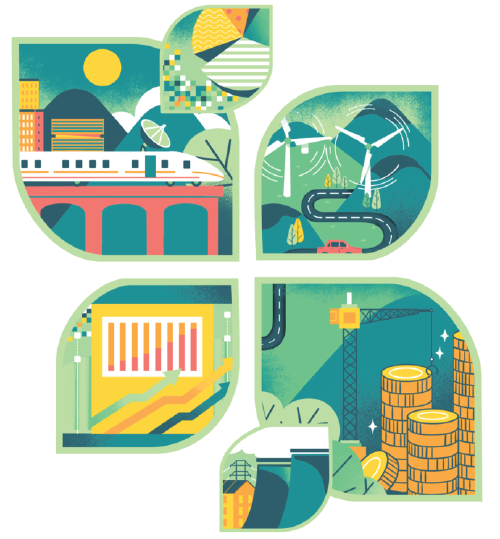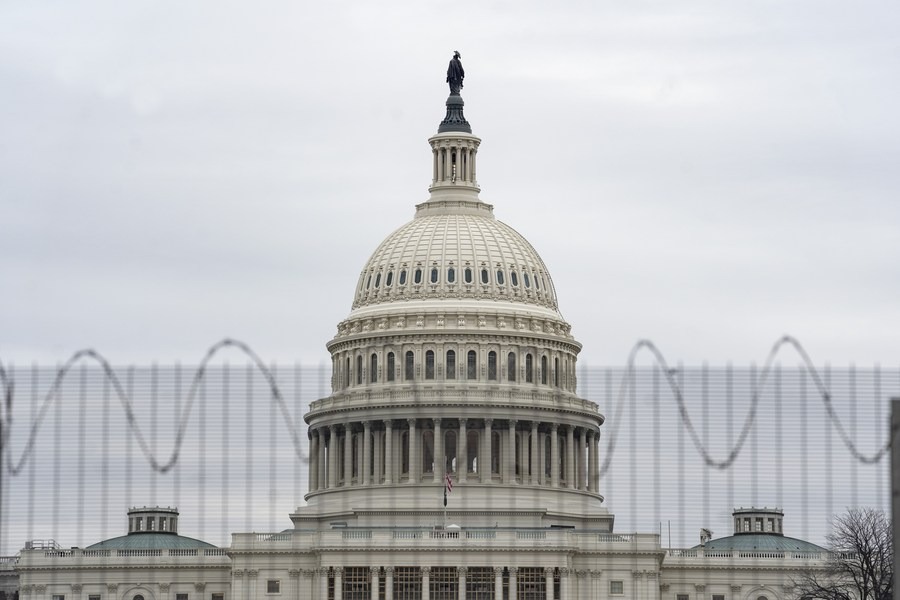Investing in the future
Green finance has big role to play in ensuring a bio-diverse world


Due to environmental pollution, climate change and economic activities, we are witnessing a rapid loss of rainforest and species that is estimated to be 1,000 times faster than the natural extinction rate. The biodiversity loss threatens human survival in terms of ecosystem degradation and food security. The Global Risks Report 2020 released by the World Economic Forum warns that biodiversity loss will be one of the top risks in the next decade.
However, global governance and resources coordination lag behind the urgency for greater global biodiversity conservation efforts. According to the Global Biodiversity Outlook 5 unveiled by the Secretariat of the Convention on Biological Diversity, despite continued conservation efforts over the past decade, none of the 20 goals of the 2010 Aichi Biodiversity Targets have been fully achieved, and little progress has been made in realizing some of them. The outcomes show the biodiversity conservation cause requires stronger political will and the power of financial capital. History has taught us, without political will, broad participation and implementation, and capital and technological support, such an ambitious goal cannot be achieved.
According to a report by the Secretariat of the Convention on Biological Diversity, the funding gap for biodiversity conservation is estimated to be between $780 billion and $895 billion per year. In terms of global financial needs by 2030, it noted that in addition to direct investment in ecological areas such as protected areas, the sustainability of farmland, pasture, fisheries, agriculture and forestry also faces significant funding gaps. The report also points out that public funds account for 80 percent of the investment in natural capital and that funding needs to be greatly increased. To encourage the participation of commercial financial institutions and private capital, governments should create a sound investment and business environment.
The current funding gaps can be transformed into investment opportunities. Financial institutions can stimulate the transition to green growth through investments related to biodiversity and green financial projects. In the current complex and volatile international situation, especially amid the COVID-19 pandemic, green finance, including biodiversity finance, is expected to become a viable force for China's financial supply-side reform under the dual-circulation development paradigm.
On Oct 11, the 15th Meeting of the Conference of the Parties to the UN Convention on Biological Diversity, COP 15, was held in Kunming, Yunnan province. The meeting initiated negotiations on a global biodiversity framework and action plan for the coming decade. The Chinese government, the host of COP 15, announced it would establish a Kunming Biodiversity Fund and take the lead by investing 1.5 billion yuan ($233 million) to support biodiversity protection in developing countries. It also issued guidelines requiring governments at all levels to take an active role in biodiversity conservation. They will introduce methods and policies to encourage the participation of social capital in ecological and environmental governance.
Responding to the series of actions, the International Finance Forum, working with 34 financial, environmental and social institutions and organizations, such as the UN Environment Programme, the World Bank and China's Huaxia Bank, launched the Global Joint Initiative for Biodiversity Financial Partnership on Oct 25 in Beijing. The joint initiative calls on global financial capital to strengthen its participation in environmental governance such as biodiversity conservation, firmly supporting the outcomes of COP 15 and the relevant initiatives of the Chinese government.
The 26th UN Climate Change Conference (COP 26) also achieved significant progress after six years of discussions. But some problems remain unsolved, such as financial issues, which are a core concern of developing countries, affecting political trust in the multilateral climate governance. A pledge by developed countries to provide $100 billion a year by 2020 has not been met, and developing countries demand action to honor it.
As a responsible participant, China is playing a vital role in addressing climate change and promoting negotiations at COP 26. The major developing country has issued a number of documents and put forward its"1+N" (1 representing a general guideline and N specific action plans for different industrial sectors) climate action plan, which sets a strong, overarching policy framework for the peaking, and subsequent constant reductions, of its carbon emissions.
The practice and innovation of green finance will usher in fresh opportunities for development and serve as a tool for promoting global environmental governance. Here are three suggestions on how green finance can further support biodiversity conservation and the fight against climate change.
First, it is necessary for financial institutes to accelerate the establishment of diversified partnerships with stakeholders of biodiversity protection and climate change. Different parties should actively participate in the negotiations on the post-2020 biodiversity framework and put forward investment and financing goals and plans before the second phase of COP 15 in April 2022.
Second, considering the problems of developing economies in advancing industrialization and urbanization, countries should jointly explore a more coordinated mechanism to protect biodiversity, address climate change and control pollution. That would be conducive to improving global environmental governance, and supporting developing countries in their efforts to solve ecological and environmental problems during their pursuit of social and economic development.
Third, governments should enhance their support for the reform and innovation of green finance, to encourage financial institutions to explore related services.
The author is a member of the Standing Committee of the Chinese People's Political Consultative Conference National Committee and vice-chairman of the Agriculture and Rural Affairs Committee of the CPPCC National Committee. The author contributed this article to China Watch, a think tank powered by China Daily.
The views do not necessarily reflect those of China Daily. Contact the editor at editor@chinawatch.cn


































